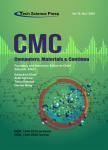Classification and Comprehension of Software Requirements Using Ensemble Learning
作者机构:School of Computer Science and TechnologyAnhui UniversityHefei230039China School of Computing SciencesPak Austria FachhochschuleInstitute of Applied Sciences and TechnologyHaripur22620Pakistan Department of Computer Science and ITUniversity of LahoreLahore55150Pakistan Department of Computer ScienceEmerson UniversityPunjabMultan60000Pakistan EIAS(Emerging Intelligent Autonomous Systems)Data Science LabPrince Sultan UniversityRiyad12435Saudi Arabia
出 版 物:《Computers, Materials & Continua》 (计算机、材料和连续体(英文))
年 卷 期:2024年第80卷第8期
页 面:2839-2855页
核心收录:
学科分类:08[工学] 0812[工学-计算机科学与技术(可授工学、理学学位)]
基 金:This work is supported by EIAS(Emerging Intelligent Autonomous Systems)Data Science Lab Prince Sultan University Kingdom of Saudi Arabia by paying the APC
主 题:Ensemble learning machine learning non-functional requirements requirement engineering accuracy sliding window
摘 要:The software development process mostly depends on accurately identifying both essential and optional ***,user needs are typically expressed in free-form language,requiring significant time and human resources to translate these into clear functional and non-functional *** address this challenge,various machine learning(ML)methods have been explored to automate the understanding of these requirements,aiming to reduce time and human ***,existing techniques often struggle with complex instructions and large-scale *** our study,we introduce an innovative approach known as the Functional and Non-functional Requirements Classifier(FNRC).By combining the traditional random forest algorithm with the Accuracy Sliding Window(ASW)technique,we develop optimal sub-ensembles that surpass the initial classifier’s accuracy while using fewer *** results demonstrate that our FNRC methodology performs robustly across different datasets,achieving a balanced Precision of 75%on the PROMISE dataset and an impressive Recall of 85%on the CCHIT *** datasets consistently maintain an F-measure around 64%,highlighting FNRC’s ability to effectively balance precision and recall in diverse *** findings contribute to more accurate and efficient software development processes,increasing the probability of achieving successful project outcomes.



